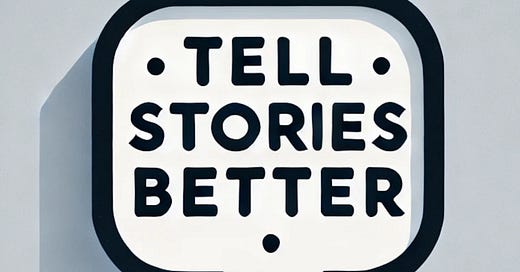There’s a moment in Breaking Bad, season 1, episode 1, where Walter White is standing in the desert, wearing nothing but tighty-whities, a gas mask, and the look of a man who just lost control of his life and possibly his bowels.
He’s got a gun in one hand and a video camera in the other, recording what sounds suspiciously like a goodbye.
We don’t know the whole story yet. In fact, we know none of the story.
But we know this:
He’s desperate.
He’s terrified.
AND he’s trying.
He says, into the camera, while clearly panicking, that this is a message to his family. “I just want you to know, no matter how it may look… I only had you in my heart.”
And somehow, impossibly, we’re with him.
Not because we like him. (We don’t know anything about him yet, really.)
It’s because, on some level, we are seeing a small sliver of our own experience (hopefully his is WAY worse, but maybe not? Don’t answer that.)
The point is – despite ourselves, we’re rooting for him. Already. And that’s enough.
Likability is important, but it’s often overrated. Or, rather, over-attempted.
Likability is empathy’s less-interesting cousin that everyone flocks to at first and then discovers how much a “bag of tricks” Likability is.
Relatability – seeing ourselves, in some way, in you – is vital. It’s empathy’s emergency contact and best friend who you’ve only met once but still shows up with gloves and a back brace to help you move.
There’s a myth that says:
“If your audience doesn’t like you, they won’t care what you have to say.”
I’d give that advice a C-. It’s not nonsense… but it misses the point. You DO want to try to be as likable as possible. But that doesn’t mean that you have to be anything approaching “perfect.”
Like, sure, don’t spit on them… but the idea that the most important thing is that your audience needs to “like” you is a weird holdover from sitcoms and high school.
Most of the people we root for in stories wouldn’t get invited to brunch… that’s why we want STORIES about them as opposed to share mortgages with them.
Likability is nice.
Relatability is necessary.
It’s the mirror, not the charm, that keeps us looking.
Honestly, the last five people I liked instantly all turned out to be pyramid- scheme-adjacent selling essential oils, finance “secrets” or recruiting for a vaguely spiritual retreat in Sedona.
But the people I relate to? The ones who admitted they’d once cried in the Wendy’s parking lot for no good reason but then didn’t overshare and dominate the conversation about it? THOSE angels? I’d follow them into battle… or at the very least a group text. Because I’ve been there, and they’ve been there. And they just might have some info I don’t about where we both are.
Here’s how I know this works:
I once opened a show with:
“I’m DIVORCED. I know it’s weird to just START talking about it like that – but too bad, that’s how I found out.”
And the audience leaned in.
Not with judgment… but with some recognition.
Even if they weren’t divorced. Even if they were there with their first and only husband… they could relate to the idea of learning a life-changing thing all at once and living with it for awhile.
Because we’ve all done a version of that. Maybe not as loudly. Maybe not on purpose. But we’ve all stood in the doorway of a bad decision and said, “This seems fine,” before walking through it in flip-flops.
Few people root for perfection.
What we root for is progress.
So how do you build that kind of instant-root-for-you energy?
You don’t need a self-indulgent sob story. You don’t need to spill your deepest shame at a dinner party. (Actually, I’m recommending for the good of both you and your host that you DON’T do that!)
You just need to shift your story into a relatable stance.
Here’s how to do it in 3 moves that make an audience stop saying “I don’t know where this is going,” and start thinking, “Oh that’s like that one time I…”
Let’s walk through the moves.
They’re simple.
And they work.
1. Start with the Flinch, not the Flex
Want to unlock the rest? Upgrade or refer some friends (for free!)
to get the full breakdown, and learn the exact moves to make people truly root for you.
Keep reading with a 7-day free trial
Subscribe to Tell Stories Better. to keep reading this post and get 7 days of free access to the full post archives.



